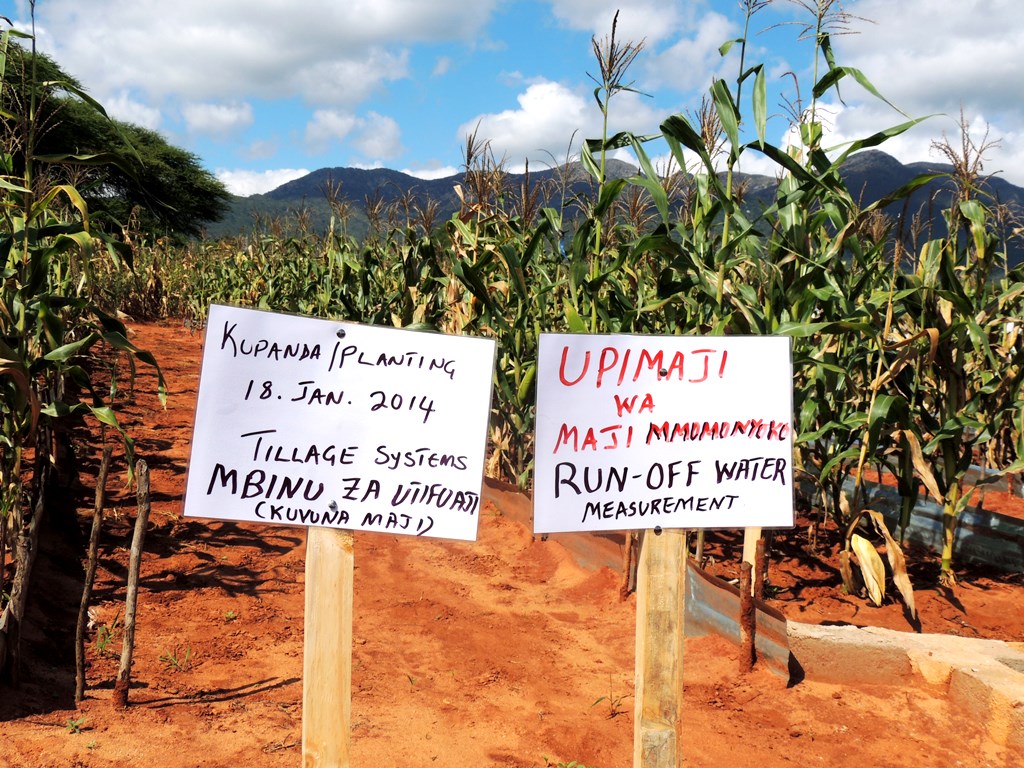USAID–Tanzania invests USD 2.2 million to support Africa RISING scale out technologies to increase productivity of smallholders

Africa RISING has received additional support from the USAID mission in Tanzania to scale out appropriate technologies to smallholder farmers in the maize- and rice-farming systems in the country.
The project has been working in Tanzania for almost three years to identify, test and adapt best-practice technologies to sustainably increase whole farm productivity of small-holders through use of innovative technologies to improve their livelihoods and at the same time conserve their natural resource base.
Africa RISING will use the complementary funding of 2.2 million USD per year to work together with two development programs supported by USAID under the Tanzania Feed the Future (FtF) Initiative to disseminate these technologies to more farmers beyond those reached by the research project. The two partner programs are NAFAKA (Tanzania Staples Value Chain) led by ACDI/VOCA and TUBORESHE CHAKULA (Let’s improve Food) led by Abt Associates.
“In our three years of research being conducted in Manyara (Babati district) and Dodoma (Kongwa and Kiteto districts), in partnership with diverse researchers and farmers, we have already identified very promising technologies and farming practices that have increase productivity significantly. We will work with NAFAKA and TUBORESHE CHAKULA to widely disseminate these technologies to thousands of small-holder farmers to increase their production in sustainable ways,” said Prof Bekunda Mateete, the Africa RISING ESA Chief Scientist, based at Arusha.
The new partnership project aptly titled “Enhancing partnership among Africa RISING, NAFAKA and TUBORESHE CHAKULA Programs for fast-tracking delivery and scaling of agricultural technologies in Tanzania”, targets to benefit 47,000 maize-based farming households from small-holder farming communities who will receive new technologies that will diversify and increase their food supply and quality, and income sources, and improve the quality of degrading cropland.
The new project also targets to expand the area under improved rice production technologies by 116,000 hectares and increase both maize and rice yields per unit area by 50 percent.
The developmental activities will be implemented in Manyara, Dodoma and Morogoro with planned extension to Iringa and Mbeya, all in the Feed the Future’s zones of influence.
The complementary project will run for 3 years, starting October, 2014.




